|
Thirty years ago today, the leader of the Grenadian Revolution, Maurice Bishop, was gunned down by his own comrades, the result of a disastrous split within the governing New Jewel Movement. There are many stones still to be unturned in connection with the revolution’s collapse and the anti-popular coup that paved the way for US invasion, but it’s clear that the movement fell victim to the sectarianism, dogmatism and individualism that emerge with frustrating frequency on the left. Combined with the systematic campaign of destabilisation and psychological warfare waged by the US, these factors led to the destruction of one of the most promising political processes of the latter part of the 20th century. Maurice Bishop was a popular, creative and intelligent revolutionary, with an intuitive grasp of where the masses were at. The clear leader of the Grenadian Revolution of 1979 that overthrew the corrupt and pro-imperialist administration of Eric Gairy, Bishop was a brilliant communicator, and his mutual empathy with the masses of the people was one of the major driving forces of the revolution – not unlike the relationship between Fidel and the Cuban people, or Chávez and Venezuelan people. In many ways, Bishop could be considered as the Hugo Chávez of his time. The Cuban government’s statement on the day after his death sums him up nicely: “Bishop was one of the political leaders best liked and most respected by our people because of his talent, modesty, sincerity, revolutionary honesty and proven friendship with our country.” 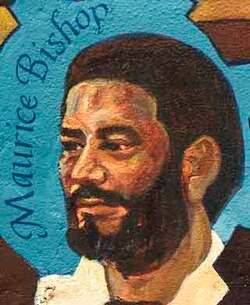 In addition to leading the fight for economic, political, social, racial, gender and cultural justice in Grenada; and in addition to working tirelessly to improve the lot of ordinary Grenadian people; Bishop was also a great friend to the socialist and anti-imperialist world. Fidel Castro saw him as a true brother and comrade, and Cuba embraced Grenada whole-heartedly, giving desperately-needed aid and expertise. Grenada built up close relations with (Sandinista) Nicaragua, the Soviet Union, Vietnam, East Germany, DPR Korea, Mozambique, Libya and Syria. Grenada also became a pole of attraction for black power activists from the US. Little wonder it was considered such a threat by the forces of imperialism. An example had to made of the first English-speaking country in the western hemisphere to walk the road of socialism. Hugh O’Shaughnessy writes: “[Washington’s] rage reached paranoiac proportions when Grenada started close co-operation with Cuba and the USSR. Grenada’s action challenged the hegemony that Washington was expecting to extend throughout the Caribbean after the withdrawal of the British who had dominated it for two centuries.” (‘Grenada – Revolution, Invasion and Aftermath’) The arrest and murder of Bishop and his close comrades by members of the Grenadian armed forces created a favourable context for the US to enact its invasion plans, which had been “nursed in secret at the State Department and the Pentagon for four and a half years” (O’Shaughnessy). The assassination was carried out by army officers acting under the instructions of the NJM faction centred around Bernard Coard. This group considered itself the ‘Marxist-Leninist’ trend to counter Bishop’s ‘petit bourgeois’ trend; however, its supposedly revolutionary actions were to set Grenada back by decades. Fidel commented on this issue in some detail at the time: “Today no one can yet say whether those who used the dagger of division and internal confrontation did so motu proprio or were inspired and egged on by imperialism. It is something that could have been done by the CIA – and, if somebody else was responsible, the CIA could not have done it any better. The fact is that allegedly revolutionary arguments were used, invoking the purest principles of Marxism-Leninism and charging Bishop with practising a personality-cult and drawing away from the Leninist norms and methods of leadership. In our view, nothing could be more absurd than to attribute such tendencies to Bishop. It was impossible to imagine anyone more noble, modest and unselfish. He could never have been guilty of being authoritarian; if he had any defect, it was his excessive tolerance and trust. In our view, Coard’s group objectively destroyed the Revolution and opened the door to imperialist aggression … Look at the history of the revolutionary movement, and you will find more than one connection between imperialism and those who take positions that appear to be on the extreme left.” 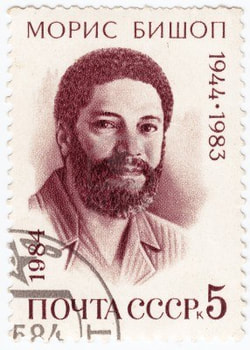 The Cuban government’s statement of 20 October 1983 predicted: “Now imperialism will try to use this tragedy and the serious mistakes made by the Grenadian revolutionaries to sweep away the revolutionary process in Grenada and place the country under imperial and neocolonialist rule once again.” A week later, this prediction was proven painfully correct, as Reagan sent tens of thousands of troops to ensure that the Grenadian Revolution was comprehensively wiped out. There is much research still to be done on the Grenadian Revolution, and many lessons to be learned. Such lessons are all the more relevant in today’s context of several Latin American and Caribbean countries pursuing their own roads to socialism. The US and their allies would love to do to Venezuela, Cuba, Bolivia, Nicaragua, Ecuador, Uruguay, Brazil and Argentina what they did to Grenada. Destabilisation continues in a thousand different ways. Meanwhile, the successes of Grenadian socialism – even if short-lived – continue to inspire progressive people around the world. The legacy of Maurice Bishop and the New Jewel Movement must be kept alive. What follows is a selection of interesting quotes from Bishop, sourced from:
On the danger of Grenada’s example “We are obviously no threat to America. Nor is Cuba for that matter. I think Washington fears that we could set an example for the rest of the region if our Revolution succeeds. In the Caribbean region you’re talking about small countries with small populations and limited resources, countries that over the years have been classic examples of neo-capitalist dependencies. Now you have these new governments like Nicaragua and Grenada that are attempting a different experiment. They are no longer looking at development as how many hotels you have on the beach but in terms of what benefits people get. How many have jobs? How many are being fed, housed, and clothed? How many of the children receive education? We certainly believe in Grenada that the people of the English-speaking Caribbean want to see an experiment like that succeed. They want to see what we are trying to build come about. America understands that and obviously if we are able to succeed where previous governments following different models failed, that would be very, very subversive.” On revolutionary spirit and vigilance “Revolutionaries do not have the right to be cowards. We have to stand up to fight for our country because, the country is ours. It does not belong to anybody else” On propaganda, education, cultural imperialism and decolonisation “We hold the truth itself to be revolutionary and we shall stand firm by its side.” On free speech, human rights and democracy “There are those (some of them our friends) who believe that you cannot have a democracy unless there is a situation where every five years, and for five seconds in those five years, a people are allowed to put an ‘X’ next to some candidate’s name, and for those five seconds in those five years they become democrats, and for the remainder of the time, four years and 364 days, they return to being non-people without the right to say anything to their government, without any right to be involved in running their country.” On destabilisation “Destabilisation is the name given to the most recently developed (or newest) method of controlling and exploiting the lives and resources of a country and its people by a bigger and more powerful country through bullying, intimidation and violence. In the old days, such countries – the colonialist and imperialist powers – sent in gunboats or marines to directly take over the country by sheer force. Later on mercenaries were often used in place of soldiers, navy and marines. Today, more and more the new weapon and the new menace is destabilization. This method was used against a number of Caribbean and Third World countries in the 1960s, and also against Jamaica and Guyana in the 1970s. Now, as we predicted, it has come to Grenada. Destabilisation takes many forms – there is propaganda destabilization, when the foreign media, and sometimes our own Caribbean press, prints lies and distortions against us; there is economic destabilization, when our trade and our industries are sabotaged and disrupted; and there is violent destabilization, criminal acts of death and destruction… As we show the world – clearly and unflinchingly – that we intend to remain free and independent; that we intend to consolidate and strengthen the principles and goals of our revolution; as we show this to the world, there will be attacks on us.” On independence “Grenada is a sovereign and independent country, although a tiny speck on the world map, and we expect all countries to strictly respect our independence just as we will respect theirs. No country has the right to tell us what to do or how to run our country or who to be friendly with. We certainly would not attempt to tell any other country what to do. We are not in anybody’s backyard, and we are definitely not for sale. Anybody who thinks they can bully us or threaten us clearly has no understanding, idea, or clue as to what material we are made of. They clearly have no idea of the tremendous struggles which our people have fought over the past seven years. Though small and poor, we are proud and determined. We would sooner give up our lives before we compromise, sell out, or betray our sovereignty, our independence, our integrity, our manhood, and the right of our people to national self-determination and social progress.” On Chile and the hypocrisy of imperialism “Has Reagan ever been interested in elections and democracy? When did Reagan ever call on Haiti to hold elections? When did Reagan ever call on the butcher Pinochet in Chile or on South Korea to hold elections? Is he calling upon racist South Africa to hold elections? No! Even when Allende in Chile had in fact won power through elections what did the American President – Nixon at the time do? Nixon, Kissinger and Helms sat down the night after Allende won the elections in September 1970 and they worked out their plan of aggression and destabilisation against President Allende. Allende didn’t say no more elections. He didn’t arm working people to try to close down the reactionary paper El Mercurio as he should have done. Allende relied on the parliamentary form that they wanted him to rely on. But because he was a socialist and was independent and was bringing benefits and justice to his people, the American elite went out of their way to crush him ruthlessly. And the criminal they put into power has yet to be told by the so-called democratic United States to call an election.” On Cuba
On the role of repression under socialism “All revolutions involve temporary dislocations and, for a period, it is always necessary to restrain the abuses and excesses of a violent or disruptive minority in the interests of consolidating the revolution and bringing concrete benefits to the long-suffering and formerly oppressed majority.” On the long path towards socialism “It took several hundred years for feudalism to be finally wiped out and capitalism to emerge as the new dominant mode of production and it will take several hundred years for capitalism to be finally wiped out before socialism becomes the new dominant mode.” AuthorCarlos Martinez is the author of The End of the Beginning: Lessons of the Soviet Collapse, co-founder of No Cold War and co-editor of Friends of Socialist China. He also runs the blog Invent the Future. This article was republished from Invent the Future. Archives May 2023
0 Comments
Leave a Reply. |
Details
Archives
July 2024
Categories
All
|
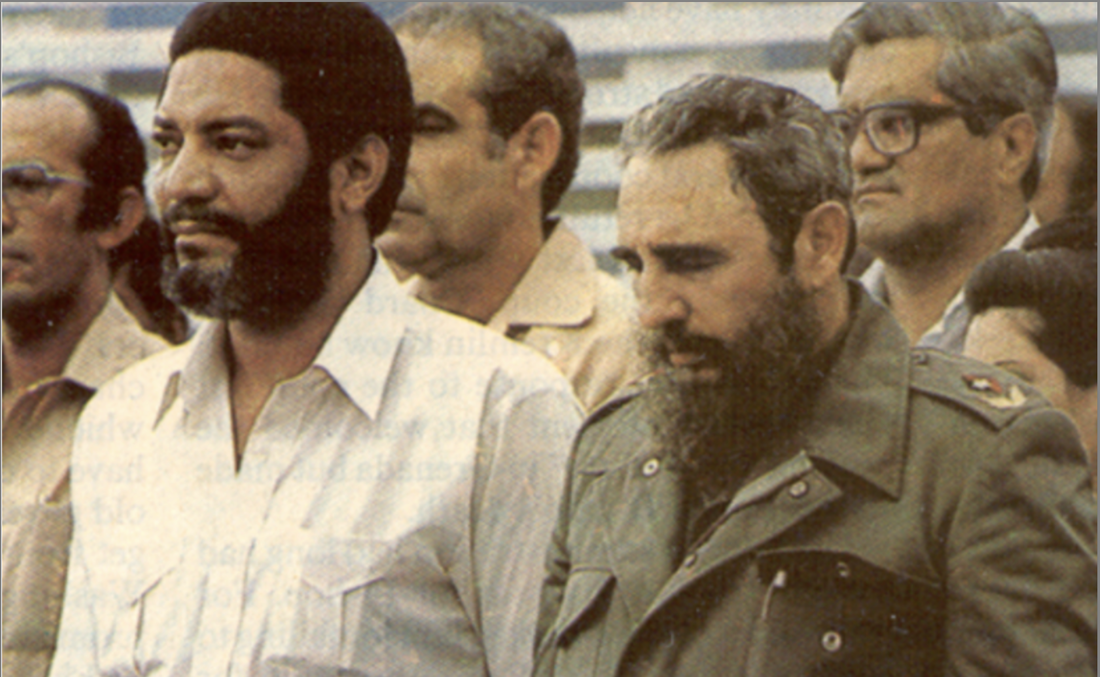
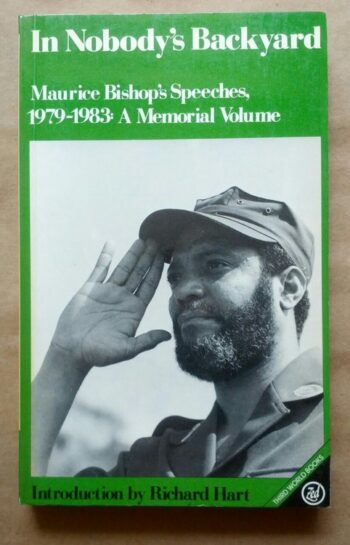
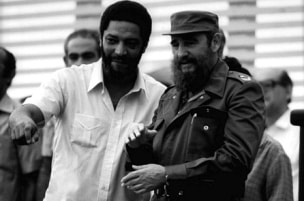
 RSS Feed
RSS Feed